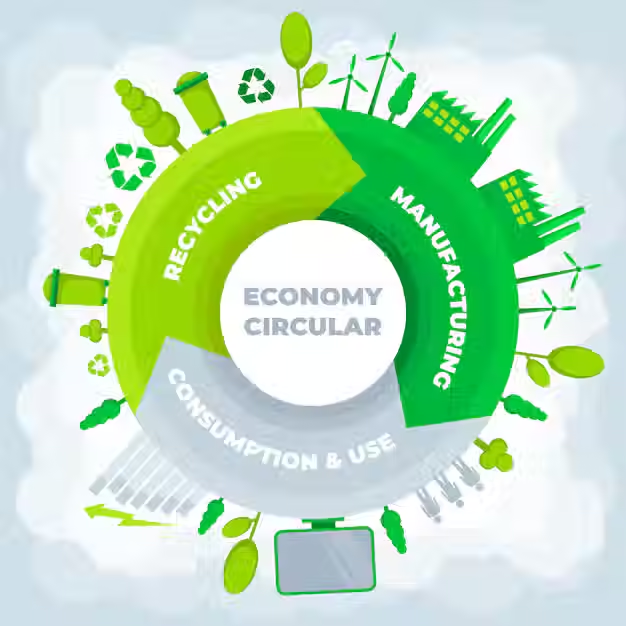Brought to you by IBEC Intelligence

In this day and age, Sustainability is not a “nice-to-have” proposition, but rather a “must-have” mandate. As different organizations are looking to become more sustainable, it has given rise to the increasing traction of circular economy, particularly in the electronics sector. The R2 (Responsible Recycling) Certification plays a vital role in this transition by establishing standards that encourage responsible recycling practices. In this blog post, we explore how R2 Certification promotes a circular economy in electronics, and why it is essential for creating a sustainable future for our planet and for the economy.
A circular economy is an alternative to the traditional linear economy, which follows a "take-make-dispose" model. Instead of discarding products at the end of their life cycle, a circular economy emphasizes the continual reuse of resources, reducing waste and minimizing environmental impact. This approach conserves valuable materials and fosters innovation, as well as economic growth.
R2 Certification developed by SERI provides a framework for responsible recycling and the management of electronic waste (e-waste). It sets standards for the recycling process, ensuring that materials are recovered, reused, and disposed of in an environmentally friendly manner. R2 Certification promotes a circular economy in several ways.
Encouraging Resource Recovery – R2 Certification mandates that certified organizations implement processes for the recovery of valuable materials from e-waste. This includes metals, plastics, and glass, which can be reintroduced into the supply chain rather than being sent to landfills. For instance, Sims Recycling Solutions, a global leader in electronics recycling, reported recovering over 1 billion pounds of valuable materials in 2022, significantly reducing the need for virgin materials.
Supporting Sustainable Practices – The certification for R2 requires organizations to adopt sustainable practices throughout their operations, from collection and sorting to recycling and disposal. R2-certified facilities must demonstrate compliance with environmental regulations and implement practices that minimize their ecological footprint. For example, Electronic Recyclers International (ERI), a leading e-waste recycling company founded by John Shegerian, has achieved a zero waste goal for its operations, ensuring that no materials end up in landfills.
Enhancing Supply Chain Transparency – R2 Certification emphasizes transparency in the e-waste recycling supply chain. Certified organizations must track their materials and ensure that all downstream partners adhere to responsible recycling practices. ERI, for instance, provides detailed reporting to clients, enhancing trust and collaboration in achieving circular economy goals.
Promoting Data Security – In addition to environmental concerns, R2 Certification addresses data security, ensuring that sensitive information is protected during the recycling process. By establishing protocols for secure data destruction, R2-certified organizations help build consumer confidence in responsible e-waste disposal. According to a report by the Ponemon Institute, 70% of consumers are more likely to recycle electronics if they know their data is secure.
Encouraging Continuous Improvement – R2 Certification promotes a culture of continuous improvement among certified organizations. They are required to regularly assess and enhance their practices to achieve better environmental outcomes. Veolia North America, an R2-certified company, has reduced its energy consumption by 20% over the past five years through ongoing process optimization.
Creating Economic Opportunities – By promoting responsible recycling practices, R2 Certification helps create jobs and stimulates economic growth in the green economy. The Global E-waste Monitor 2020 reported that the global e-waste recycling industry employed over 1.5 million people, and this number is expected to grow as more companies pursue R2 Certification and sustainable practices.
R2 Certification is an essential component in promoting a circular economy in the electronics sector. By encouraging responsible recycling practices, resource recovery, and supply chain transparency, R2-certified organizations contribute to a more sustainable future. As the world continues to grapple with the challenges of e-waste and environmental degradation, adopting R2 Certification is a meaningful step toward fostering a circular economy that benefits both businesses and the planet.
Speak with our IBEC experts today to get on the path to R2 Certification!

Comments